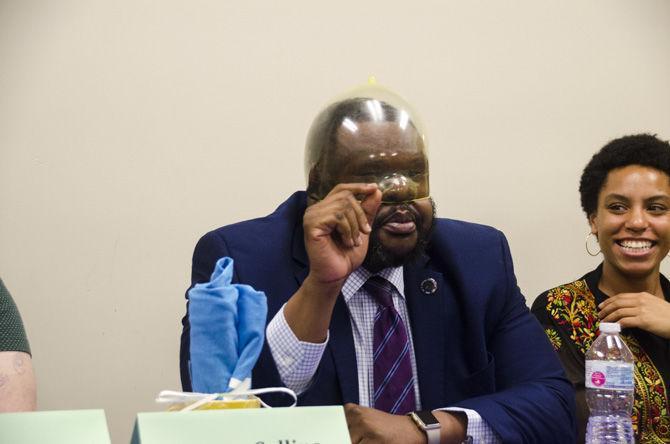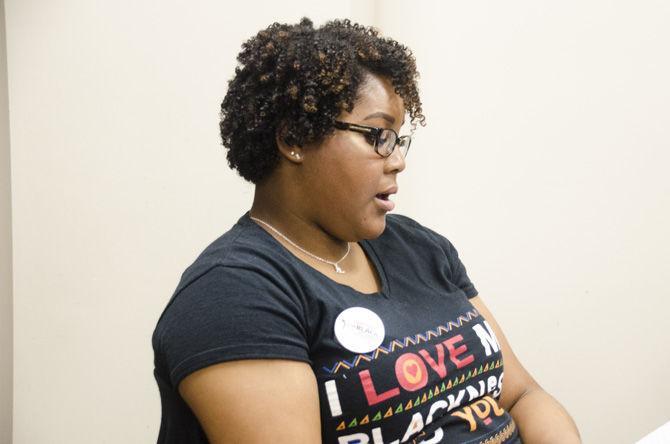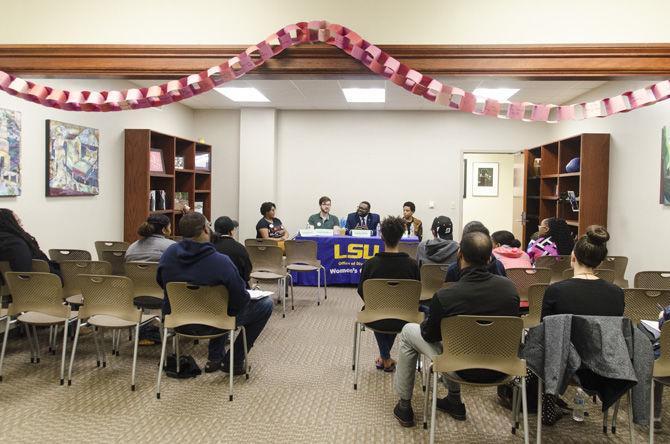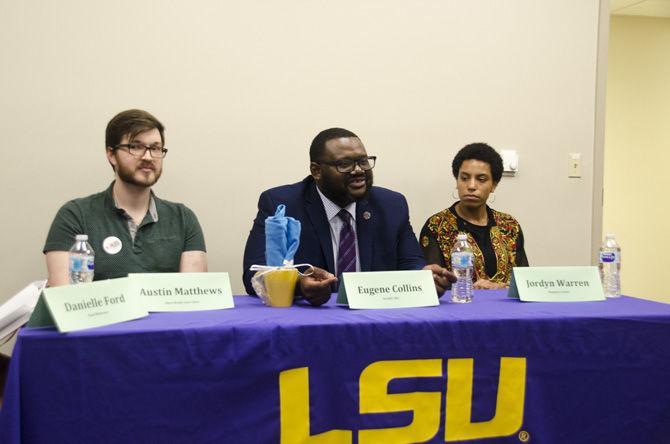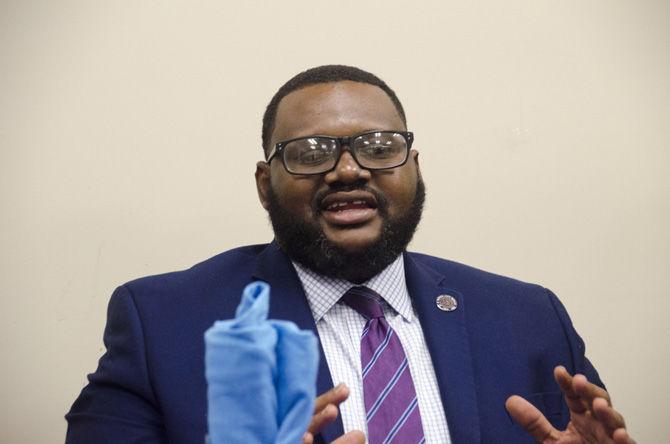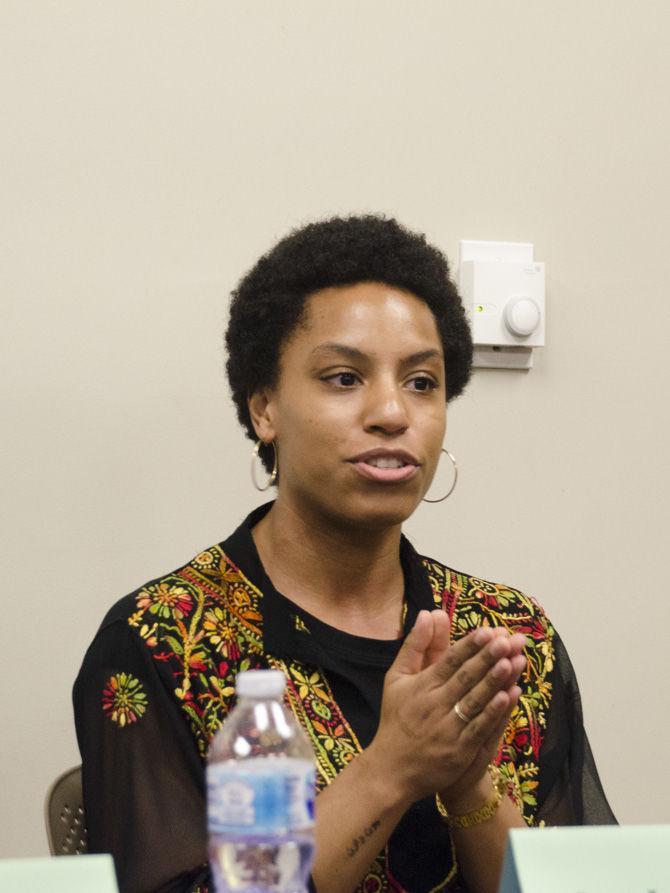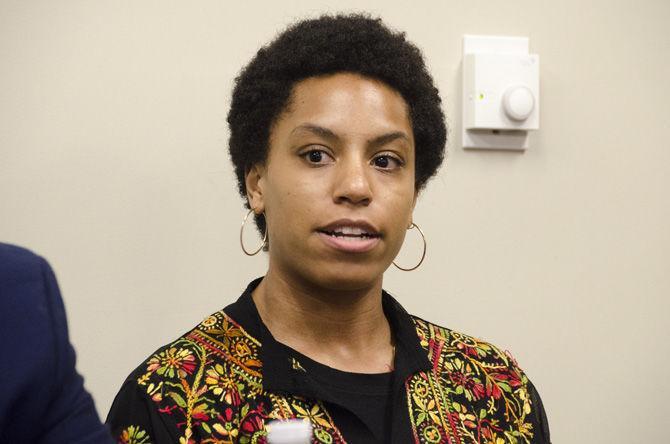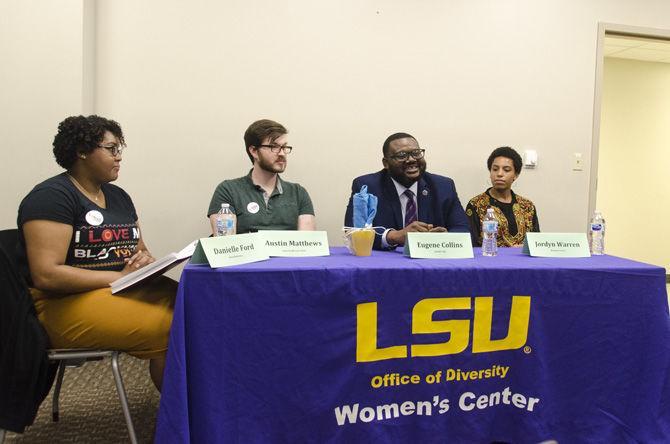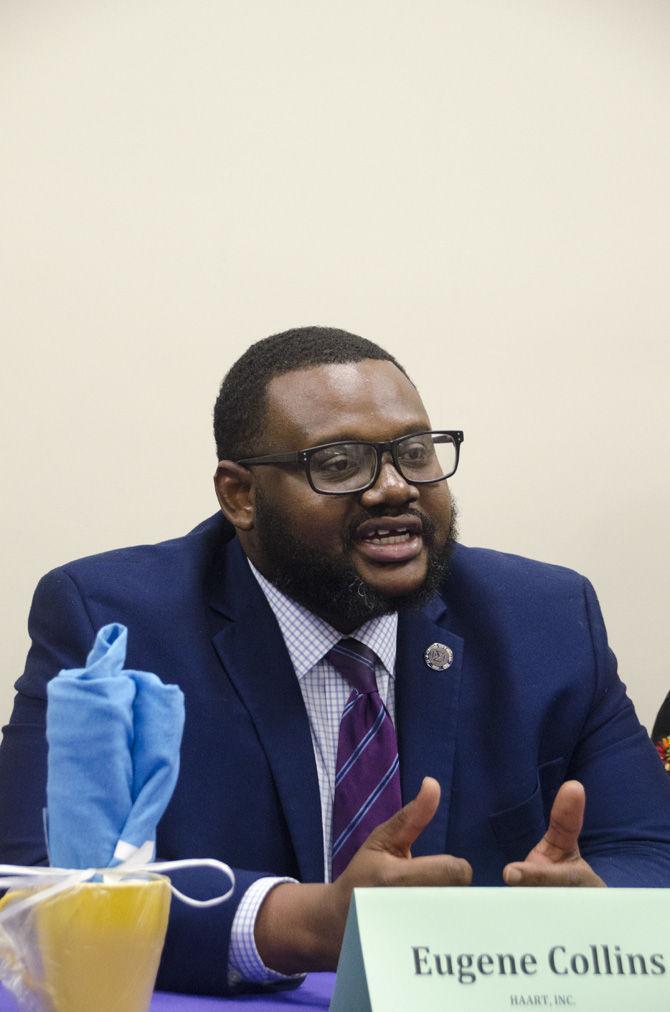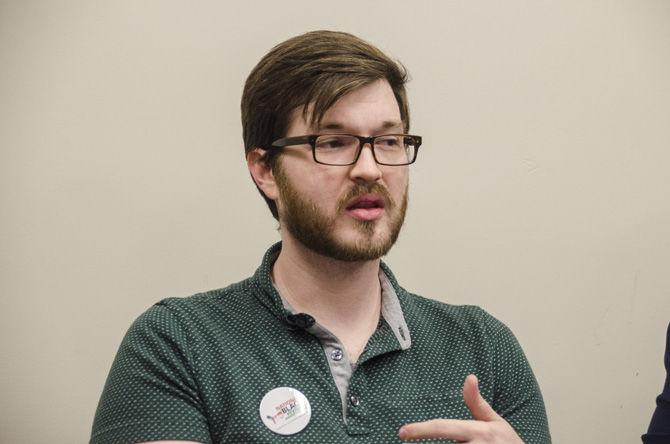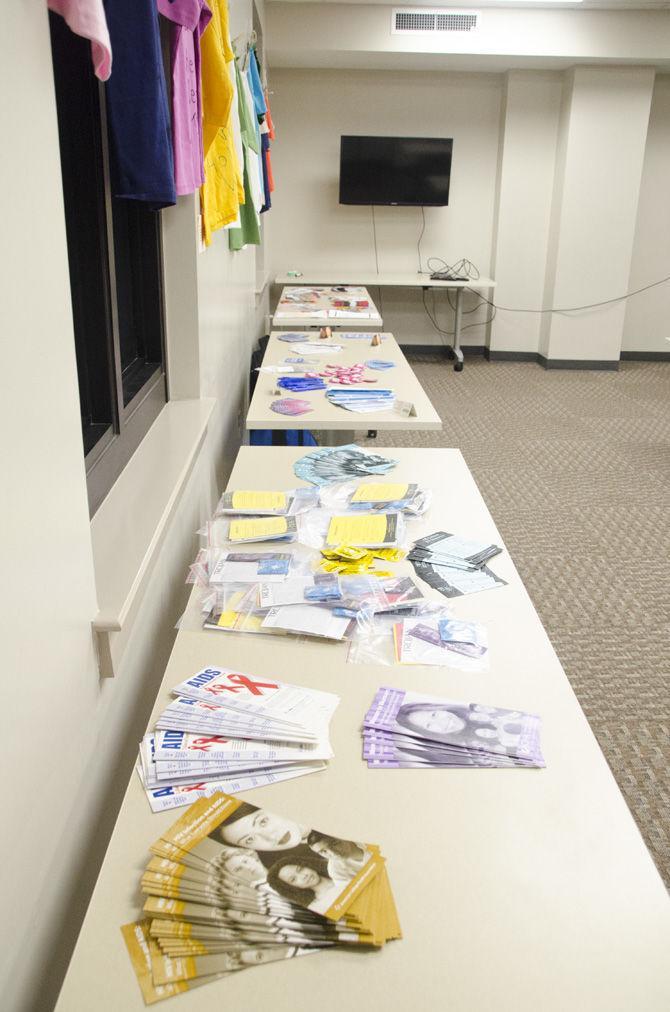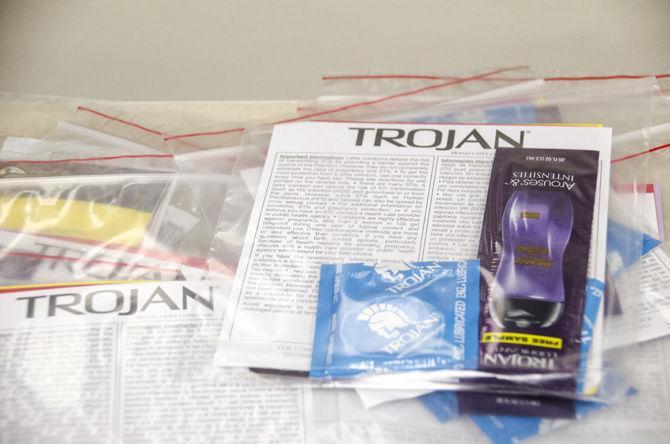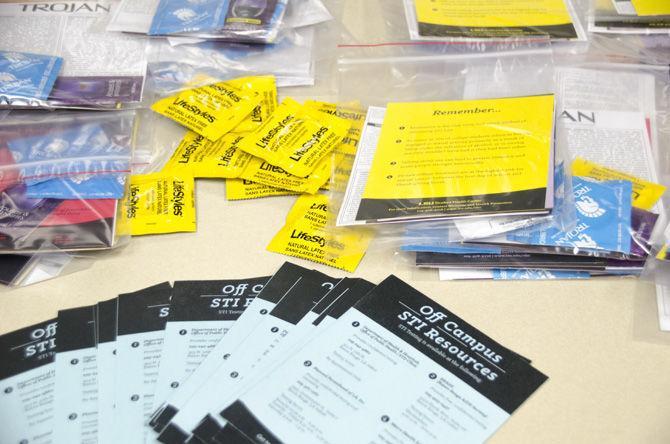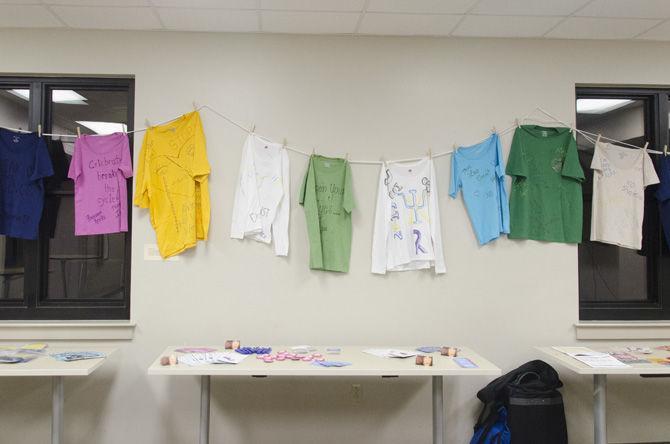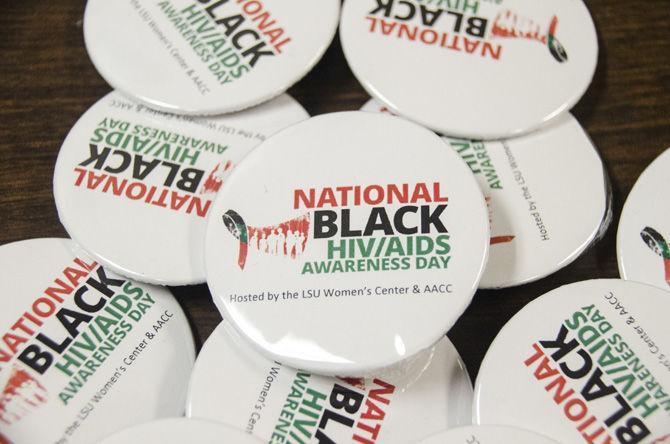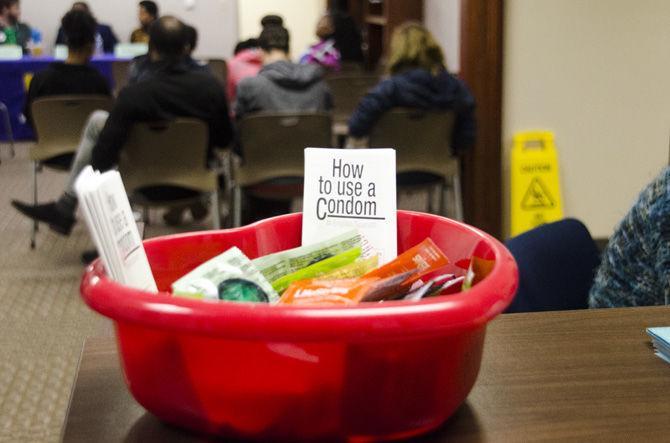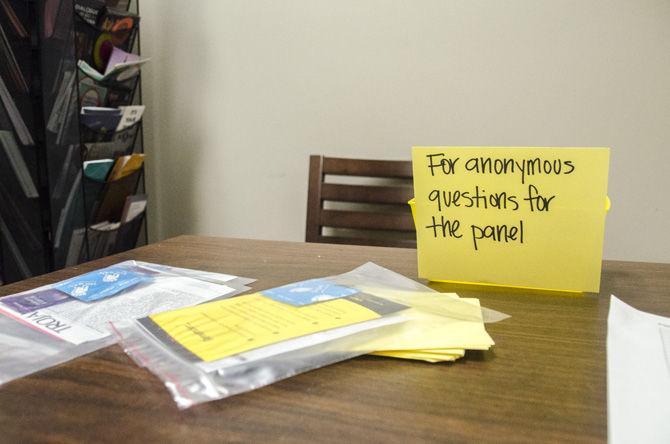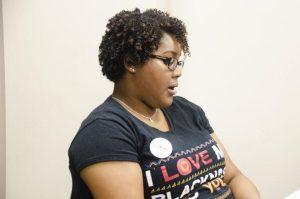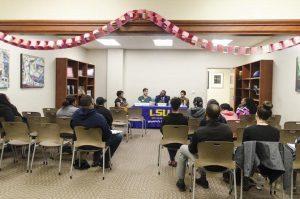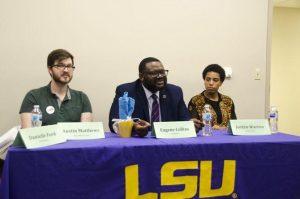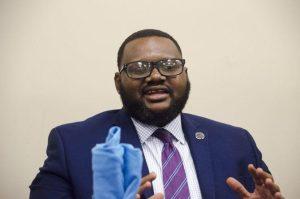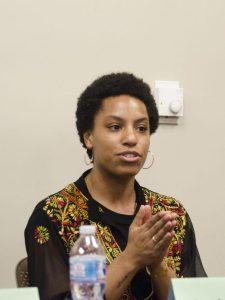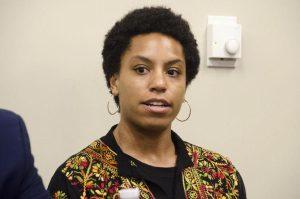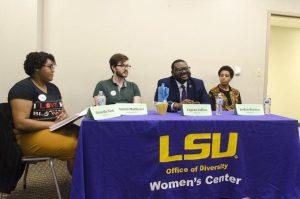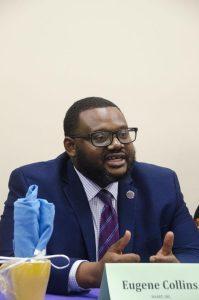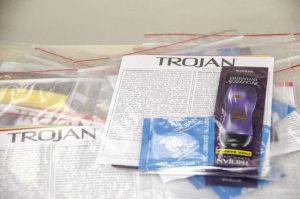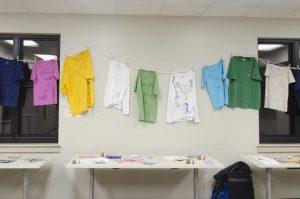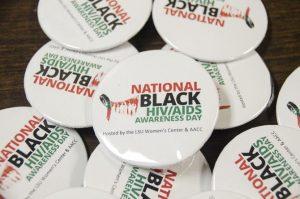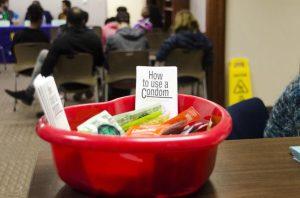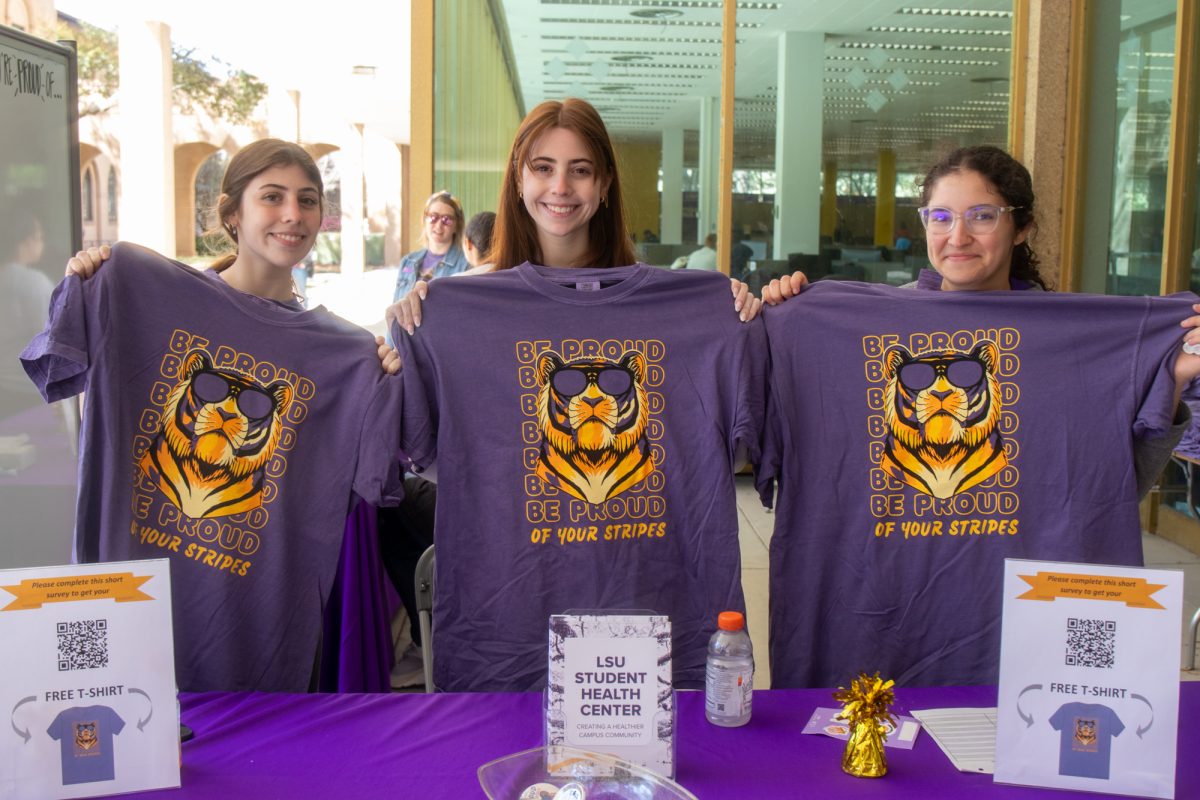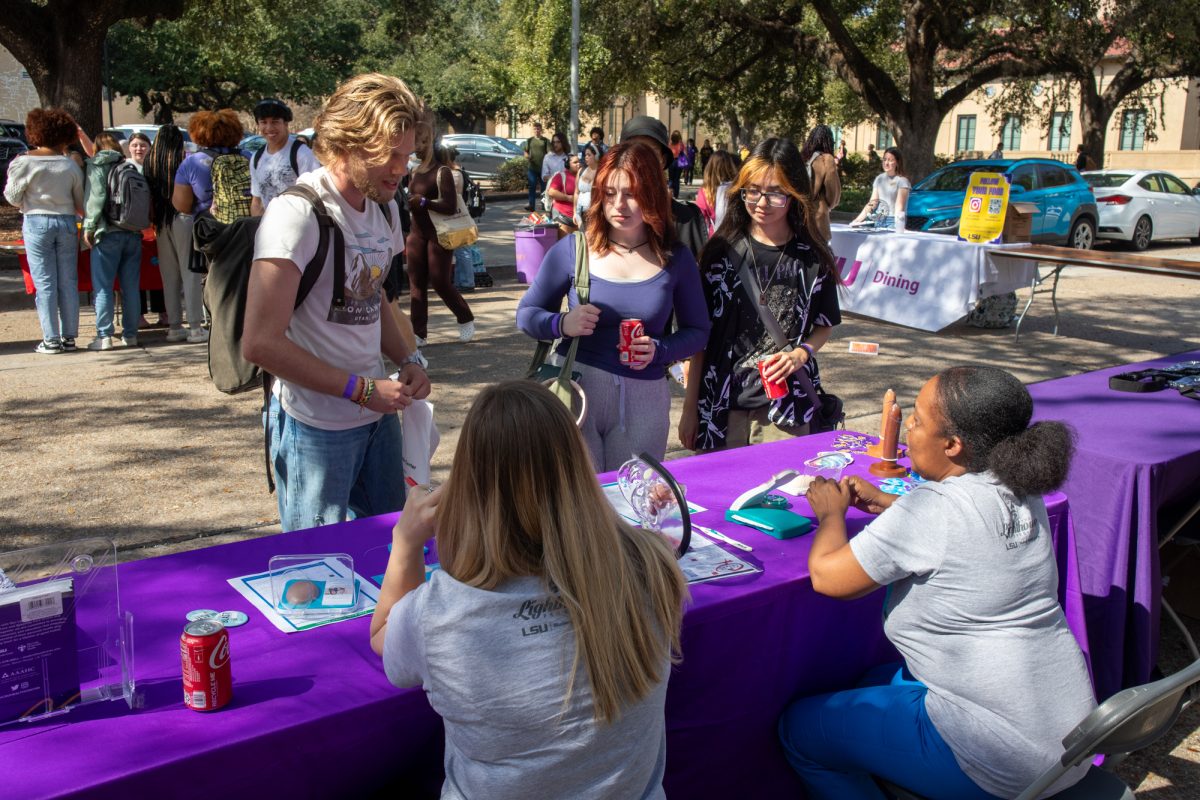If students walked into the LSU Women’s Center at the right time on Feb. 7, they might have been treated to the sight of a man with a condom stretched over his entire head. This is normal practice on National Black HIV/AIDS Awareness Day.
The three panelists speaking at the convention were not afraid to use unconventional means to reach their audience. The event was hosted by the LSU Women’s Center and the LSU African American Cultural Center. Panelists included grad student Jordyn Warren, University alumnus Austin Matthews and Director of Prevention at HAART, a nonprofit dedicated to people living with HIV/AIDS in the Baton Rouge area, Eugene Collins, who were all passionate about their cause: reducing HIV and the stigma surrounding it.
Warren, in particular, had a personal connection to the cause. Warren, a master’s student concentrating in mass communication, said she was diagnosed almost two years ago with HIV.
“Since my diagnosis, I’m realizing that a lot of people still hold these antiquated stereotypes and stigmas about people living with HIV,” Warren said. “I’m hoping I can dispel those myths for a lot of people.”
HIV, or human immunodeficiency virus, is a virus that attacks the immune system, specifically CD4 cells, otherwise known as T cells. If HIV is left untreated for long enough, the T cell count drops below 200, meaning the person has developed AIDS, formally known as acquired immunodeficiency syndrome, according to the U.S. Department of Veterans Affairs website. AIDS is the last stage of HIV infection. If HIV is diagnosed and properly medicated, the carrier does not develop AIDS.
For her segment of the panel, Warren talked about her experiences living with HIV, and how, despite the diagnosis, she is able to live her everyday life unaffected, continuing her education as well as a happy relationship with her boyfriend. Her speech resonated with the audience, leading one girl to haltingly ask if she had been able to forgive the person who gave her HIV. Warren responded gently, saying that she had forgiven him, as it was likely he did not know he had HIV.
Being unaware of having HIV is not uncommon. Since HIV has no symptoms, people can go years without knowing they have HIV. In Baton Rouge, the problem is much more prevalent. The city has extremely high rates of sexually transmitted diseases such as HIV and AIDS. The statistics are extremely high for Louisiana as a whole, according to Collins.
“It’s a problem that affects every parish in Louisiana, and is especially high in the black community, which makes up 90 percent of all HIV cases in Baton Rouge,” Collins said.
According to HAART, the problem is dire. In 2015, Louisiana had around 20,398 reported cases of HIV, 52 percent of which had been diagnosed with AIDS. In 2015, Louisiana was ranked second in the nation for HIV case rates, and 11th for AIDS cases.
Statistics like these were explained to participants at the National Black AIDS/ HIV Awareness Day. The purpose of the event was to give information about HIV treatments, accessible care and to reduce the stigma surrounding HIV, especially focusing on HIV in the black community.
Collins was especially passionate about ways to prevent HIV, which is transmitted through bodily fluids such as breast milk, blood, and semen/vaginal fluids.
At one point in the evening, Collins called up a volunteer and asked him to demonstrate proper condom use. Collins then ridiculed his technique and showed him the proper, more detailed, method of condom application. The volunteer was handed a pamphlet on condom use and patted on the shoulder.
All attendees were given this level of attention, with the organizers giving thorough information on prevention methods, testing resources and medication. Matthews, a social worker at the Open Health Clinic, emphasized HIV resources available to those who need them. For University students, there are several resources available, such as free HIV testing in the LSU Student Union on certain days, free testing at the HAART clinic, HIV prevention medication available at the Open Health Clinic and free condoms at the LSU Women’s Center.
“If you care about Baton Rouge, you need to care about HIV and people living with HIV,” Matthews said. “Our goal is to eradicate HIV from Baton Rouge. And the only way we can do that is by getting people into treatment and getting negative people on PrEP. If you’re in treatment, you’re part of the solution.”
The event helped educate and debunk myths and stigmas, according to arts in higher education master’s student Jolie Dudley.
“Learning more about debunking myths and different negative stigmas about certain situations,” Dudley said. “Just getting some things cleared up and having a better understanding about others experiences, who lived this, and just general medical information that I didn’t know before this.”



